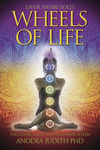The Sunny Side of the Mountain

The seventh Hermetic principle teaches us that gender is in everything; everything has its masculine and feminine principles; gender manifests on all planes.—Keith Sherwood
I like the idea of celebrating women's history month in March, symbolically linking this commemoration to the vernal equinox. On March 20 or 21 of each year, the sun reaches its peak point on its climb into the northern hemisphere, and we experience twenty-four hours of equally balanced light throughout the world—twelve hours of day and twelve hours of night. This moment of equality between day and night continues to mark our passage into spring. For many, the equinox also brings an opportunity to make extraordinary things happen, such as balancing an egg on its end, which usually rolls over if you even try. (I guess the truth is that anyone can balance an egg on its end at any time of the year—if you have patience, luck, and the right egg.) http://www.llewellyn.com This bit of folklore suggests that the equinox is a beautiful representation of balance, much like the Chinese philosophy behind yin-yang. The sun moving northward along the ecliptic in March and southward during the autumnal equinox in September calls to mind the interlocked parts of the yin-yang symbol. Fittingly, the original meaning of yin-yang comes from the image of a mountain bathed in natural passages of light. Yin signifies the shady, northern side of the mountain, while yang signifies the sunny southern side—neither of which could exist without the other. Yin energy can always be found inside yang, and vice versa, as the white spot inside yin and the black spot inside yang make so clear.
The turning of the seasons is the product of opposites in a constant embrace. The ongoing interaction of light/dark, hot/cold and ascending/descending leads to evolution, growth and change. In Wheels of Life, Anodea Judith describes the dynamic nature of yin-yang. "Change is produced by the constant interaction of yin and yang fluctuating around a state of balance. Without change, there is no growth, no movement and no life."
According to the Taoists, the forces of yin and yang were also present at the conception of the universe and breathed life into everything that exists. Prana, otherwise known as cosmic energy, split into two halves and came to be known by yin-yang, endowing everything with certain masculine and feminine qualities. In Chakra Therapy, Keith Sherwood elaborates on these qualities:
"Everything manifest in our universe is defined by its particular balance of yin and yang. Yin represents femininity, body, soul, earth, moon, water, night, cold, darkness, and contraction. Yang, on the other hand, has opposite characteristics. Yang is masculine, mental, spirit, heaven, sun, day, fire, heat, sunlight, and expansion. Nothing is completely yin or yang. Everything has elements of both."
I think it's fascinating that another ancient philosophy firmly holds that everything is made of interwoven masculine and feminine qualities. In the Hindu tradition, the whole universe was created and continues to evolve through the eternal dance of the goddess Shakti and the god Shiva. Shakti is the female life giver who is known as pure energy and potential. She animates Shiva, the masculine force of creation and power who in turn makes things happen in the world. Together, they represent divinity and transcendence, as each lifts the other out of a solitary state into a natural, blissful union. Shiva and Shakti tell us that divinity is the ultimate blending of masculine and feminine qualities.
These philosophies of unity and balance emphasize how a self-centered and one-sided approach to life is isolating and unnatural. To live most harmoniously, we should always strive to weave together the Shiva/Shakti and yin-yang energy within ourselves. Two bestselling Llewellyn titles, Wheels of Life by Anodea Judith and Chakra Therapy for Personal Growth and Healing by Keith Sherwood, describe how to balance your internal opposites. Doing so, we can dramatically change the way we relate to ourselves, our loved ones and our everyday world. As Anodea Judith writes, "Through weaving together complimentary threads, such as masculine and feminine, spirit and matter, light and darkness, self and other, we escape the separation of dualistic thinking and enter a more holistic philosophy." After all, remember that the Earth receives only twenty-four hours of perfectly balanced light during the equinox. After that, the sun tips into next hemisphere and light and dark are again redistributed and interwoven throughout the world.
Related Products

is subject to certain Terms and Conditions